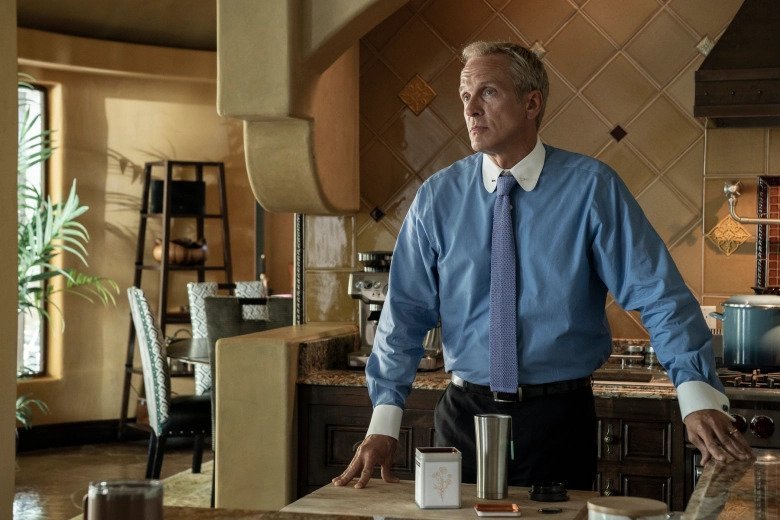The Anatomy of Death Scenes in Better Call Saul (SPOILERS)
THERE ARE MANY SPOILERS AHEAD FOR BOTH BREAKING BAD AND BETTER CALL SAUL - READ AT YOUR OWN DISCRETION
Better Call Saul; S3E10, S6E3, and S6E8. A death of a character happened in each of these episodes, Chuck McGill, Nacho Varga, Howard Hamlin and Lalo Salamanca respectively. Vince Gilligan, creator of Breaking Bad and Better Call Saul is known for his meticulous world-building and symbolism. Both series have their fair share of foreshadowing and nuances, but unlike Breaking Bad, Vince Gilligan doesn’t only use death scenes to contribute to the show’s narrative, but create a narrative in itself.
In Breaking Bad, a character’s final scene was something to behold. Victor’s borderline decapitation, Mike’s chase, and Gale’s confrontation were some striking ones, but Gilligan is not as quick to subject players to death in his current series. Obviously, some characters in Better Call Saul do not appear in Breaking Bad, thus they need to be dispensed of somehow before the series’ finale. In contrast, Breaking Bad’s cast was incredibly new to viewers at its time, nothing was to be expected and each new character felt more integral to the overarching plot than the last. Gilligan knew he had to make a spectacle out of their exits from his prior show, but that necessity is not as pressing in a show like Better Call Saul, where he is clearly comfortable with his creative craft.
The four aforementioned characters from Better Call Saul all occupy the role as Saul’s antagonists. Saul teeters on the line of being a chronic criminal or just a corrupt lawyer with limitless ambition, but he is certainly not violent. Walter White and Jesse Pinkman were irrational megalomaniacs whose moral lengths could not be measured by the naked eye. Saul will always restrict himself from brutality though, such as S4E6 of Better Call Saul (Piñata), where even though Saul dabbles in kidnapping, it is only used as a threat. Therefore, we know that every death in BCS will not come at the hands of Jimmy/Saul, but that doesn’t mean that they have to come at the hands of another.
Chuck, Nacho and Lalo are not victims. They are subject to punishment from their own decisions that initiate a string of events, landing them in fatal situations by their own volition. Chuck has constantly tormented Saul, and eventually began to resent him out of jealousy for his accomplishments. Saul is not exonerated from how horrendously he treated Chuck, but Chuck certainly directly inflamed his brother’s hatred for him by constantly ostracizing him as a genuine lawyer. As a result of Saul’s revenge on Chuck, the older brother finds his fate through a lifetime of egocentricity that led himself to the realization that he had become his own brother’s most harmful villain.
Even though Nacho’s moral compass is constantly called into question, his own desire for prosperity with the drug cartel placed him at a point of no return, dooming his fate before he could even reconcile with himself and others. Finally, there is Lalo; Lalo is also a casualty of narcissism. He had it all figured out, he had his arch-nemesis in the palms of his hands, but lost focus of his goals in order to humiliate his foe. Yes, Lalo was murdered, but he gave his killer a chance for retaliation that he could’ve easily stripped him of.
I say ‘finally’ when tying these three characters' deaths together because Howard stands out from the pack. He is the only one who is truly murdered for standing by his virtues, all the way from the beginning of the series. Chuck was the true blockade for Saul’s entry into legal work, but Saul had always believed it was Howard. Subsequently, Howard found himself on the receiving end of many of Saul’s devious sabotages. Regardless of his suffering, Howard always stayed true to what he believed in, even if his intentions are ambiguous at times. The trio of deaths that surround his own meet a calculated demise, but Howard is a true victim of murder. He doesn’t know Lalo, he doesn’t know Saul’s connections with the cartel, he doesn't know a world outside of his own. His obliviousness and constant tone-deafness entailed many personal conflicts within his life that he had caused, but he was not malicious as the three others could be. Vince Gilligan provides viewers with unceremonious and uncharacteristic deaths for the three more vital characters to the show’s story, but executes a shocking and bloodcurdling slaughter of Howard.
This is Howard’s big moment to shine in all his grand nature, just as villains in Breaking Bad received. In BCS though, Gilligan flips this trend on its head by giving the most dramatic fatality to the true hero of the series. Even a character like Kim’s ethics wavered at times, but Howard rarely cracked under pressure. In his final hours, he is exploding though, his facade of composure has been erased by Saul, and he is put to rest at his most uncertain time.


